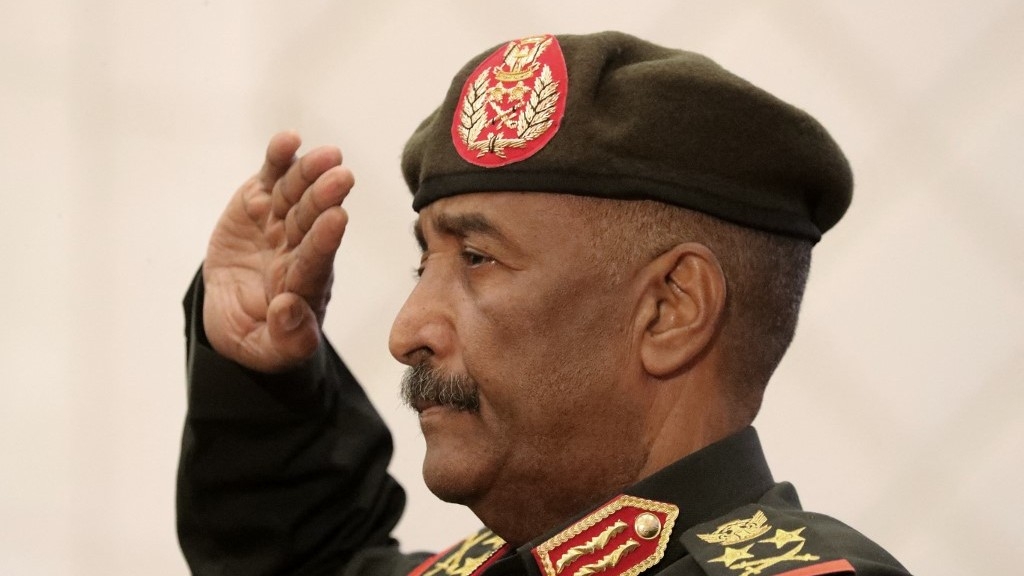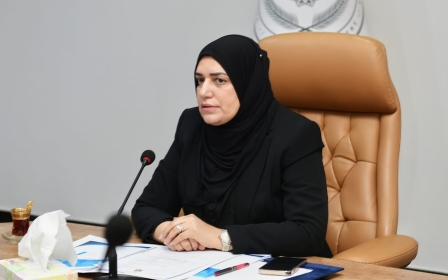Arabic press review: Sudan to extradite 'convicted' Egyptian dissidents to Cairo

Sudan to extradite Egyptian dissidents to Cairo
The Egyptian Network For Human Rights (ENHR) said on Tuesday that a Sudanese court had issued life imprisonment sentences against several Egyptian dissidents who have been detained in Sudan for two years. It added that they are due to be deported to Cairo coinciding with the arrival of an Egyptian security delegation in Khartoum, according to a report published by Arabi21 website.
The ENHR said a high-ranking Egyptian security delegation visited Khartoum on Sunday and the sentences were issued against the opponents on the same day. The sentences were life imprisonment for four detainees, two years imprisonment for five others, and acquittal for two others.
The ENHR said it could not verify a relationship between the ruling and the visit of the Egyptian security delegation. But the sentences stipulated the deportation of all defendants, according to an Egyptian-Sudanese security agreement, which allows the deportation of convicted Egyptians, if Cairo so requests.
The detainees were "subjected to various periods of arbitrary detention and enforced disappearance before they were brought before the prosecution, in addition to their complaints of physical and psychological torture and depriving them of visits and meeting with lawyers," according to the ENHR.
The ENHR warned of their deportation to Sudan and said their lives are at risk, given the previous deportations that took place against opponents from Sudan to Egypt.
The defendants at risk of deportation are among a group of Egyptians detained in April 2020. Middle East Eye has previously reported that they had been tortured, denied access to lawyers, family visits, and access to food and medical supplies from their families.
Syrian government confiscates homes owned by Palestinian refugees
Syrian government security services have confiscated a number of homes owned by Palestinian refugees in Khan al-Shih camp in the countryside of Damascus, according to Palestinian sources in the Al-Quds Al-Arabi newspaper.
The sources said that patrols affiliated with miltary security have taken over some homes in the camp, which are owned by Palestinians outside Syria, during the past few days.
The sources stated that members of the patrols "stole the contents and furniture" of several houses in the camp, and transported them outside the camp. The sources also claimed that "verbal altercations took place between members of the Military Security and some families and neighbours of the homes that were stolen, while they were trying to prevent the theft", according to the London-based paper.
The patrol commanding officer threatened to demolish the camp, burn it and arrest all its residents, describing the residents as "terrorists", before preparing some of the houses whose contents were stolen to stay inside the camp, and these houses were turned into "security centres".
'This is not the first time that the regime has confiscated property belonging to Palestinians in Syria'
- Maher Shawish, writer and member of the AGPS
A member of the Action Group for Palestinians of Syria (AGPS), writer Maher Shawish, said that "this is not the first time that the regime has confiscated property belonging to Palestinians in Syria".
The residents of Khan al-Shih camp - like the rest of the Palestinian camps in Syria - suffer from a lack of the most basic necessities, according to Al-Quds Al-Arabi.
The AGPS, an independent popular body that follows up on the affairs of Palestinian refugees in Syria, said that the complaints of the people have escalated recently due to the price of foodstuffs, in addition to the bread crisis, which has become a huge source of concern for people, especially large families.
In addition to the bread shortage, people in the camps suffer from continuous power outages. A few days ago, activists from the Palestinian camps in Syria called on the United Nations Relief and Works Agency for Palestine Refugees in the Near East (UNRWA) to take urgent action to determine the needs of families and disburse aid immediately, and confirmed the deterioration of the living conditions due to the collapse of the economy.
Iraq to restrict the travel of Palestinians
Palestinian activists and journalists in Iraq have criticised a recently issued law stipulating that the Palestinians of Iraq are not allowed to travel abroad for more than 30 days, describing it as "illogical and preventing them from travelling for medical purposes", according to Al-Araby Al-Jadeed newspaper.
An official source from the Palestinian Embassy in Baghdad said, "The Iraqi authorities have adopted new measures that were not previously announced, preventing Palestinians residing in Iraq from returning if they spent more than a month outside Iraq, which is an unfair and illogical decision."
The source, who asked not to be named, added that "there are several Palestinian families who departed Iraq some time ago for medical purposes, and when they returned, they were surprised that the Iraqi authorities prevented them from entering Baghdad, due to the expiration of their travel, which is supposed to not exceed one month."
The source pointed out that "Palestinians who travelled for treatment to Turkey, India and other countries, and others who travelled for study entered into a real dilemma because of this decision by the Iraqi authorities".
A Palestinian activist in Iraq, Muhammad Mahmoud, said: "The recent decision that was issued by the Iraqi government was not officially announced, but we discovered it through people who travelled, and when they returned, they were shocked by it."
He noted that "there are sick Palestinians who need treatment outside Iraq and in distant countries such as India, but the latest decision will deny the Palestinians even the right to treatment abroad".
For his part, Palestinian journalist Nabil Samara said that the Iraqi government had cancelled Resolution 202, which stipulated that Palestinians should be treated as Iraqis, and the Residence Directorate in Iraq allowed Palestinians who live in Iraq to travel for only three months.
But during the past weeks, the Iraqi authorities reduced this period for one month, which is "an illogical decision" especially since there are patients and others who seek an opportunity for resettlement in European countries and may not succeed, and therefore they need to return to Iraq, he said.
Al-Araby Al-Jadeed contacted the office of Prime Minister Muhammad Shia'a Al-Sudani for a repsonse, but an official said he "did not have any information on the matter".
The Iraqi parliament had cancelled Law 202 relating to the Palestinians in Iraq, which stipulates that "the Palestinian has the same rights as the Iraqi, until the liberation of the entire Palestinian territories".
*Arabic press review is a digest of news reports not indepdently verified as accurate by Middle East Eye.
Middle East Eye delivers independent and unrivalled coverage and analysis of the Middle East, North Africa and beyond. To learn more about republishing this content and the associated fees, please fill out this form. More about MEE can be found here.



